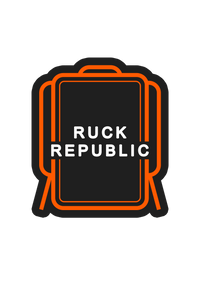The Impact of Social Interaction on Mental Health and the Benefits of Rucking
In today's fast-paced world, maintaining strong social connections can often fall by the wayside. However, a growing body of research underscores the vital role that social interaction plays in mental health. Let's delve into why fostering community and connection is essential for our well-being and how rucking can be an excellent way to achieve this.
Emotional Support and Reduced Loneliness
Emotional support from friends, family, and community members can significantly mitigate feelings of loneliness and isolation, which are major risk factors for mental health issues like depression and anxiety. A study by Teo et al. (2013) found that individuals with fewer social interactions were more likely to experience depression. Conversely, those with robust social networks were less likely to develop this condition.
Buffer Against Stress
Social support also acts as a buffer against stress. According to a meta-analytic review by Ozbay et al. (2007), having supportive relationships helps individuals cope more effectively with stress, thereby reducing the likelihood of stress-related mental health problems. This protective effect is comparable to other well-known risk factors such as smoking cessation.
Improved Self-Esteem and Confidence
Being part of a community can boost self-esteem and confidence through positive feedback and encouragement. This sense of belonging and validation from others can enhance one's self-worth and reduce the risk of mental health issues.
Enhanced Cognitive Function
Regular social engagement is not only beneficial for emotional health but also for cognitive function. The Honolulu-Asia Aging Study (Saczynski et al., 2006) found that higher levels of social engagement are associated with a reduced risk of cognitive decline and dementia in older adults. This suggests that social interaction can help maintain cognitive health as we age.
Happiness and Well-being
Social connections are closely linked to overall happiness and well-being. Fowler and Christakis (2008) demonstrated that happiness spreads through social networks, meaning that being connected to happy individuals increases the likelihood of being happy oneself. Positive social interactions contribute significantly to emotional well-being and life satisfaction.
Community and Resilience
Finally, community support enhances resilience, helping individuals better cope with and recover from adversities. Norris et al. (2008) found that social cohesion and community support enhance both individual and collective resilience, which is crucial for mental health during challenging times.
Rucking: A Path to Social Interaction, Community, and Mental Health
Rucking, which involves walking with a weighted backpack, is not only a fantastic physical workout but also an excellent way to foster social interaction and community, leading to improved mental health. Here's why rucking is great for these aspects:
- Shared Experience: Rucking in groups provides a shared experience that fosters camaraderie and mutual support. This can strengthen social bonds and create a sense of belonging.
- Physical and Mental Benefits: The physical activity involved in rucking releases endorphins, which boost mood and reduce stress. Combining this with the social aspect amplifies the mental health benefits.
- Accessible and Inclusive: Rucking can be done by people of all fitness levels, making it an inclusive activity that can bring together diverse groups of people.
- Goal Setting and Achievement: Participating in ruck challenges or events helps individuals set and achieve goals, boosting self-esteem and confidence.
- Community Building: Regular rucking groups and events build a strong sense of community, offering emotional support and friendship.
Conclusion
The evidence is clear: fostering social connections and community involvement is crucial for mental health. Whether through family, friends, or community groups, staying connected can provide emotional support, reduce stress, enhance self-esteem, maintain cognitive function, and spread happiness. Rucking offers a unique way to achieve these benefits by combining physical activity with social interaction, making it a powerful tool for mental well-being. As we navigate the complexities of modern life, prioritizing social interaction through activities like rucking can lead to a healthier, happier, and more resilient self.
References
- Fowler, J. H., & Christakis, N. A. (2008). The spread of happiness in a large social network. BMJ, 337, a2338.
- Holt-Lunstad, J., Smith, T. B., & Layton, J. B. (2010). Social relationships and mortality risk: A meta-analytic review. PLoS Medicine, 7(7), e1000316.
- Norris, F. H., Stevens, S. P., Pfefferbaum, B., Wyche, K. F., & Pfefferbaum, R. L. (2008). Community resilience as a metaphor, theory, set of capacities, and strategy for disaster readiness. American Journal of Community Psychology, 41(1-2), 127-150.
- Ozbay, F., Johnson, D. C., Dimoulas, E., Morgan, C. A., Charney, D., & Southwick, S. (2007). Social support and resilience to stress: From neurobiology to clinical practice. Psychiatry (Edgmont), 4(5), 35-40.
- Saczynski, J. S., Pfeifer, L. A., Masaki, K., Korf, E. S., Laurin, D., White, L., ... & Launer, L. J. (2006). The effect of social engagement on incident dementia: The Honolulu-Asia Aging Study. American Journal of Epidemiology, 163(5), 433-440.
- Teo, A. R., Choi, H., & Valenstein, M. (2013). Social relationships and depression: Ten-year follow-up from a nationally representative study. PLoS One, 8(4), e62396.

